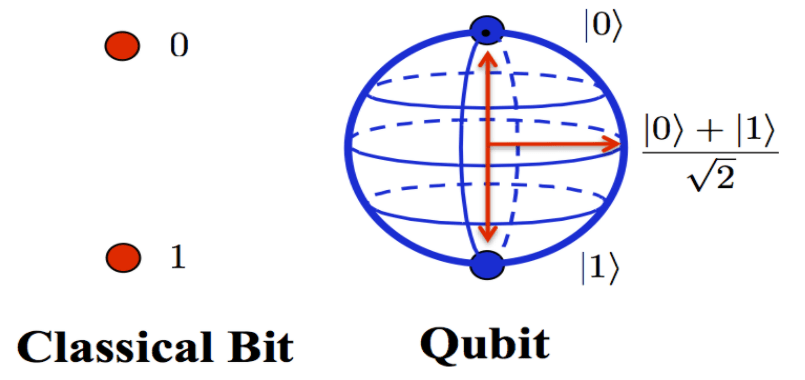What is Quantum computing?
Quantum computers are those machines that use the properties of physics to store data and perform its computations. These can be extremely advantageous tasks where they might vastly outperform even our greatest supercomputers.
Classical computers, which include smartphones and laptops, encode information in binary “bits” which will either be 0s or 1s. In a quantum computer, the essential unit of memory may be a quantum bit or qubit.
Qubits are the spin of an electron or the orientation of a photon. These systems are often directly referred to as quantum superposition. Qubits can be inextricably linked together employing a phenomenon called quantum entanglement. The results show that a series of qubits can represent various things simultaneously.
For eight bits of a classical computer, you can represent any number between 0 and 255. But for eight qubits it’s not enough for a quantum computer. A few hundred entangled qubits represent more numbers than there are atoms within the universe.
In situations where there is an outsized number of possible combinations, quantum computers can consider them simultaneously. Examples include trying to seek out the prime factors of a really sizable amount or the simplest route between two places.
However, there can also be many situations where classical computers will still outperform quantum ones. So the computers of the longer term could also be a mixture of both these types.
Quantum computers are highly sensitive and produce heat, electromagnetic fields, and collisions with air molecules. It can cause a qubit to lose its quantum properties. This is referred to as quantum decoherence which causes the system to crash and it happens more quickly the more particles that are involved. Quantum computers used to protect qubits from external interference for errors that crept into the system.
Quantum computing is actually harnessing and exploiting the amazing laws of quantum physics to process information. Our traditional computers use long strings of “bits,” which encode in binary codes whereas quantum computers use quantum bits or qubits. Qubit encodes the zero and the one into two distinguishable quantum states.
Quantum Computing Fundamentals
All computing systems believe in a fundamental ability to store and manipulate information. Current Computers are responsible for manipulating individual bits, which store the information as binary 0 and 1. Quantum computers have leverage quantum bits or qubits.
Difference between the quantum computer and a classical computer
Quantum computing can run calculations exponentially faster than any conventional binary computer. That makes quantum computing powerful enough to bridge gaps that exist in various other complex areas.
A classical computer always stores the information in the form of 0s and 1s called bits while a quantum computer uses qubits to encode its information. In the case of classical computing where bits have 2 states, quantum computing qubits can be in superposition and can be at any point in the sphere below which represents the classical 0,1 and superpositions. The act of measuring qubit changes with a state. With each measurement, this qubit goes from being in superposition to one of the classical states.

Classical computers encode the information in bits where each bit is encoding in binary. One qubit encodes two values simultaneously.
Quantum mechanics create these ultra-secret keys
Quantum key distribution relies on the property of quantum mechanics to observe or measure a quantum system.
Photons have a unique measurable property called polarization. Since the polarization of each photon is random. Depending on its polarization, Each disturbance in the system keeps receiving photons until their keys are long and identical enough, to get ultra-secure keys for encrypting communications.
The requirement to build a Quantum computer
We need qubits that could be made of photons, atoms, electrons, molecules or anything. Scientists at IQC are researching a large range of arrays for them as potential bases for quantum computers. Since it’s manipulative, any disturbance causes them to fall out of their quantum state. Decoherence is the Achilles heel of quantum computing. The field of quantum error examines how to stave off decoherence and other errors.
When will there be a real quantum computer?
Team of researchers from IQC and MIT experiments the most number of qubits. While practically quantum technology is already emerging, highly effective sensors, actuators, and other devices. Quantum computers are continuously figuring out ways to overcome decoherence through various technologies and instruments. The pioneering work is paving the way for the coming quantum era.
jQuery presents a tree-like structure of all the elements on a webpage simplifying the syntax and further manipulating such elements. The jQuery Certification Exam by StudySection will secure your fundamental knowledge and a basic understanding of jQuery as an asset to improve your skills.




